If tourism is taking a paddle in another culture, travelling abroad as a working vet is diving in deep. It’s fair to say the culture shock is on another level–but so are the rewards.
As well as gaining international experience and exposure to different veterinary practices, you’ll be immersed in a whole different way of living, thinking, and relating to your fellow humans.
You’ll make deep and lasting friendships and professional connections, and emerge not only knowing another culture, but knowing how to adjust to another culture–a skill that will stand you in good stead for the rest of your life, at home as well as abroad.
Read on to discover some of the cultural and professional differences you may encounter when working abroad in three countries that are popular with UK vets: Canada, the US, and Australia.
Canada
The good international relations between the UK and Canada make it relatively easy to relocate there. Canada has strong historical ties with the UK and is part of the Commonwealth–Charles III is the king of both countries.
British, French, and indigenous cultural influences combine to create a unique and diverse culture in a country with equally diverse landscapes, from sunny beaches to snowy mountains to the famous giant redwood forests. Exploring the great outdoors is a huge part of Canadian culture and offers experiences you won’t find in the UK.
Canadian politeness and hospitality are famous worldwide–in fact, Canada has a considerable edge over the UK in this area, if you believe the InterNations survey of the world’s friendliest countries. Canada ranked in the top 10 while the UK didn’t even make the top 50.
The cost of living in Canada is slightly higher than in the UK, particularly in big cities like Vancouver, Toronto, Victoria, Hamilton-Burlington and Calgary, but nowhere stands out as extremely pricey in the way London does. The provinces of New Brunswick and Québec offer the best value for money. You’ll also find eating out tends to be cheaper, and the cuisine is varied and delicious.
If you have permanent residency in Canada, you’ll also be eligible for free healthcare under the Medicare system, but if not, you’ll need private insurance. This can be expensive, so it’s worth negotiating health insurance as part of your job package.
The US
Perhaps the biggest cultural difference between the US and the UK is that American culture is itself drastically different from region to region. It’s about 40 times bigger than the UK, and it feels like it.
As a vet, you’ll have very different expectations in, say, cosmopolitan Long Island vs. rural Mississippi. Your best bet is to read up on what kinds of pets and farmed animals are most common (one young vet arriving in rural Ohio was very surprised to meet her first pet goat) and what responsible pet ownership looks like culturally in the place where you’ll be practising. As in the UK, there are some areas where people will need a culturally-sensitive conversation about, for example, why they shouldn’t let their cat roam free or why they need to have their dog fixed.
The stereotype that all Americans are brash is undeserved, but they do tend to be more open and friendly, and strangers are more likely to strike up a conversation with you. The stereotype that they find British accents adorable is absolutely correct, especially in the country, where you’ll be greeted as if you’ve just stepped out of Mary Poppins.
Another cultural difference is that Americans aren’t big on self-deprecation. Confidence is a big expectation in professional settings, as is positivity. You don’t have to be arrogant, but you may hear comments from your boss like, “Don’t put yourself down, tell me what you’re going to do to fix it,” or, “I like when people tell me they’re good at something and mean it.”
While racism is more overt than in the UK–Black vets in particular may want to reach out to the local Black community in their new location for support and advice–the US is full of thriving, culturally rich minority communities, which offer a great opportunity to bond over common experiences and develop a network. Even small towns often have NAACP chapters and other local resources that would love to have your fresh perspective.
You may have heard that the cost of living is higher in the US, but there are a couple of important positives that aren’t as widely known. Firstly, many cities offer good value for young professionals, with low real estate prices in relation to the average wage. Forbes’ list of most affordable cities includes:
- Fort Wayne, Indiana
- Wichita Falls, Texas
- Brownsville, Texas
- South Bend, Indiana
- Dayton, Ohio
- Toledo, Ohio
- Evansville, Indiana
- Buffalo, New York
- Beaumont, Texas
Secondly, land is cheap, so you’ll find American homes seem enormous. Kitchens where you need to say, “Sorry, can I just squeeze past?” are as British as the inclination to say it.
Australia
While Australia may not actually be as big as the US, it can feel even bigger thanks to the enormous stretches of wilderness. Whether you’re in the lush green bush or the arid red outback, in rural Australia you really are “out back” in a way that’s hard to comprehend for us small islanders.
Working in the UK, you and your clients are never too far from the nearest referral hospital, which limits what you get to do and experience yourself. When you work in an Australian rural practice–where your out-of-hours workload may feature dramatic cases like snake bites, toad poisoning, and tick paralysis–you might be five hours from the nearest referral hospital, so you do what you can with what you’ve got. This makes it a fantastic learning environment where you’ll rapidly absorb masses of useful experience and gain confidence.
The wide open spaces and sunny weather mean Aussies spend a great deal of time outdoors, exploring or playing sports. They’re also a great deal more laid-back than the average Brit, not only in the country but also in the big cities. Sydney has a far more relaxed vibe than London.
In fact, we’ve heard it said that in Australian culture, being too polite is rude, and being casual and familiar is polite. If you have roots in east London, you’ll know exactly what we mean–which might not be a coincidence, as many Aussies come from Cockney stock.
While the average cost of housing and groceries is higher than in Australia, the Sydney property market is 20% cheaper than London, cars are 35% cheaper, petrol costs about 50p less per litre–and the average salary is a massive 28% higher than in the UK.
Of course, the salary you achieve in any of these places depends on having someone in your corner who understands the local veterinary job market and can negotiate expertly on your behalf. That’s us. We can also guide and support you through every step of the relocation process, with insider info to make sure it all goes smoothly. Get in touch today to find out more–we’d love to answer your questions.








